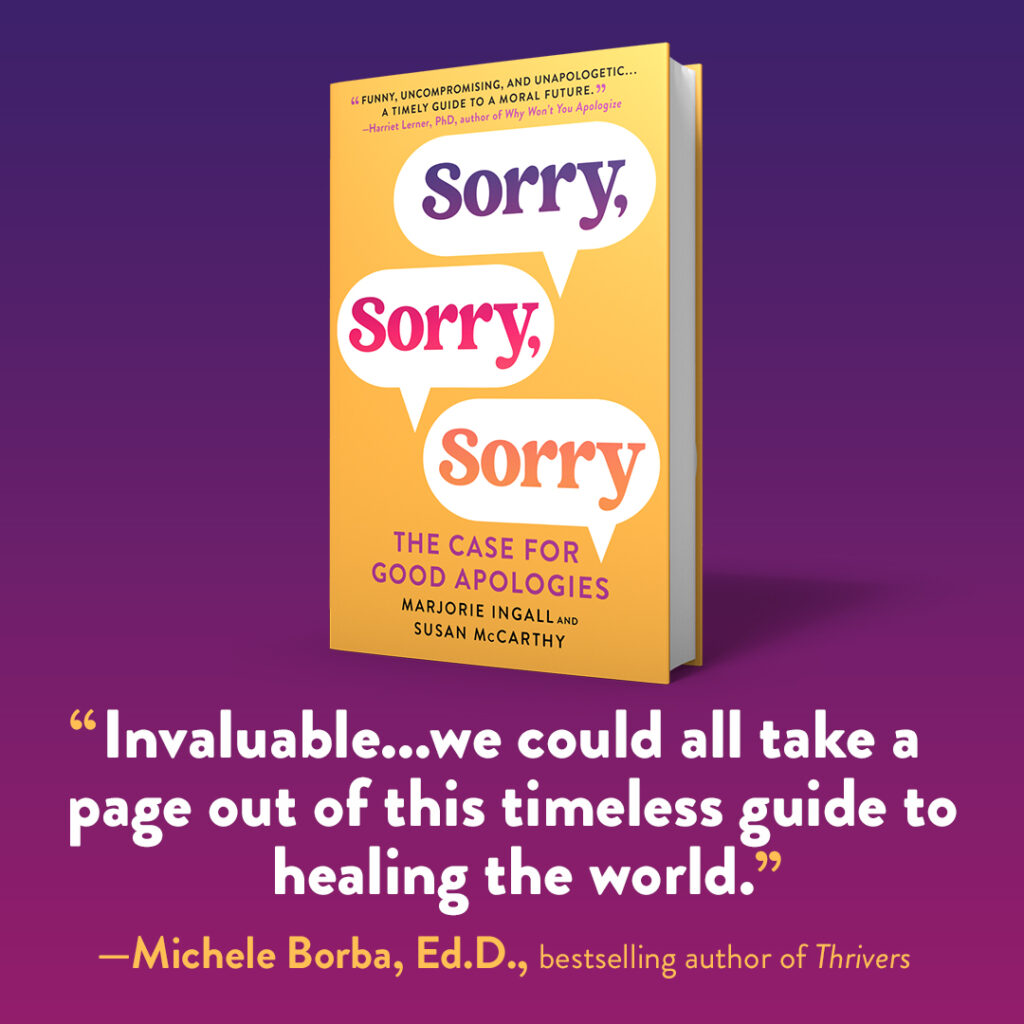I’ve always said that in another timeline, I’d be a crisis PR executive. I’m fascinated by public apologies and how deeply terrible the majority of them are. We’ve witness bad apologies from Will Smith to James Charles to… some of our competitors *cough*… and honestly? I love dissecting them, imagining what they could’ve said differently, and thinking about how many people dropped the ball leading up to the public apology. Is it schadenfreude? Maybe. But more likely, I’m just a nerd for communication theory.
Side note: There’s actually a term for the study of apologies, it’s called apologia. Back in my day (lol), we used Ted Kennedy’s Chappaquiddick address to discuss apologia. Shout out to Dr. Kramer’s Persuasion class for that nugget of trivia.
Imagine my surprise when Sorry, Sorry, Sorry: The Case for Good Apologies by Marjorie Ingall and Susan McCarthy came across my desk. A book all about bad apologies? It’s like catnip specifically formulated for me!
Drawing on a deep well of research in psychology, sociology, law, and medicine, Ingall and McCarthy explain why a good apology is hard to find and why it doesn’t have to be. Alongside their six (and a half)-step formula for apologizing beautifully, Ingall and McCarthy also delve into how to respond to a bad apology; why corporations, celebrities, and governments seldom apologize well; how to teach children to apologize; how gender and race affect both apologies and forgiveness; and most of all, why good apologies are essential, powerful, and restorative. A good apology can do so many things—mend fences, heal wounds, and bring more harmony into ourselves and our society at large.
With wit, deep introspection, and laugh-out-loud humor, Ingall and McCarthy’s guidance will help make the world a better place, one apology at a time.
Sorry, Sorry, Sorry is out now from Gallery Books!
Thank you to Simon & Schuster for sponsoring this post. All opinions are our own.


